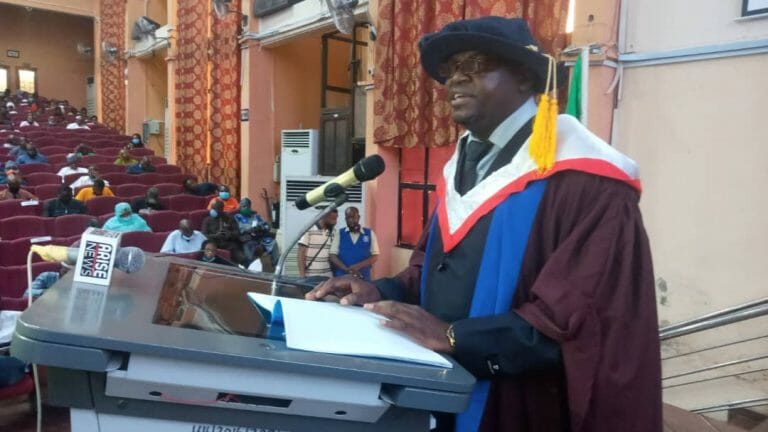Prof. Moshood Mustapha, a zoologist, believes that man-made lakes in Nigeria have the potential to generate N100 billion in revenue for the country each year.
Mustapha, a zoologist at the University of Ilorin’s Department of Zoology, revealed this in a paper presentation at the university’s 210th Inaugural Lecture.
The lecture was titled “Man-Made Lakes: A Tool for Ending Man-Made Poverty.”
He also stated that man-made lakes in the country could provide direct and indirect employment to approximately 100,000 people via water transportation.
According to him, man-made lakes offer one of the most cost-effective, safe, and convenient modes of transportation via inland waterways navigation.
“Nigeria has approximately 10,000 km of waterways, making it the second longest in Africa.” If developed through dredging, it could provide transportation while also boosting industrial growth, tourism, job opportunities, and people’s socioeconomic well-being.
“There are over 300 man-made lakes and reservoirs in Nigeria with surface areas of 275, 535 hectares,” he said.
Mustapha defined a man-made lake as a dam or reservoir, or a man-made basin created by building a dam across a river to impound water for various purposes.
“It differs from natural lakes, which are formed naturally through processes such as glaciation, volcanic eruptions, and river meandering.”
“Water is the substance of life, accounting for more than 60% of the human body.” It covers roughly 70% of the earth’s surface, but only 1% of that is fresh water, which is typically impoundment by Manning lakes, reservoirs, ponds, and other impoundment for the benefits,” he explained.
Improving the poor’s access to water and its resources, he believes, will contribute to poverty eradication and improved quality of life.
He advocated for the control, efficient, and effective conservation and management of lakes and their resources, noting that water and its resources could become scarce.
Mustapha warned that such scarcity could exacerbate people’s poverty.
